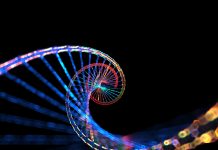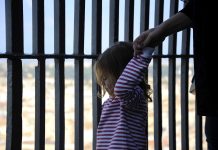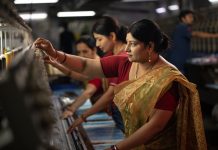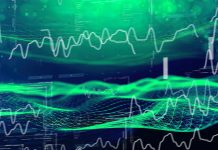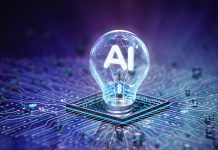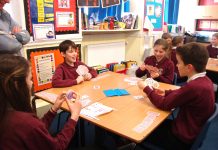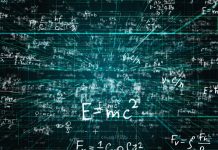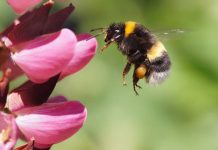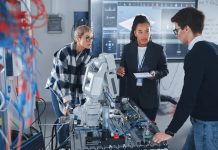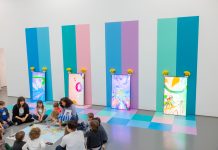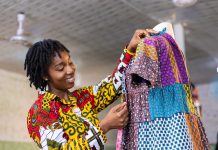Open Access Government produces compelling and informative news, publications, eBooks, and academic research articles for the public and private sector looking at health, diseases & conditions, workplace, research & innovation, digital transformation, government policy, environment, agriculture, energy, transport and more.
Home 2026
Archives
Could the mind sport bridge provide much-needed social connection in the digital age?
A third of young people in the UK experience loneliness linked to screen use. Bridge: A MindSport for All (BAMSA) asks: Could the mind sport bridge provide the much-needed social connection in the Digital Age?
Business education at the crossroads: Transform or face irrelevance
The article, authored by Jean Garner Stead, calls for an urgent re-evaluation of business education to foster leaders capable of creating sustainable value in a rapidly changing world.
The medieval march of Wales: Welsh or English?
Professor Helen Fulton at the University of Bristol, examines the case study of the Medieval March of Wales, a vibrant multicultural border region between...
Paulo Freire, social justice, and the democratic possibilities of education
Stephanie Schneider from SUNY Old Westbury examines Paulo Freire’s fascinating work on social justice, and the democratic potential of education.
The legacy of bias: Building the foundation for sex and gender-based medicine
Alyson J. McGregor, Associate Dean at the University of South Carolina School of Medicine, highlights the historical bias present in medical research; the exclusion of which has created a significant knowledge gap that impacts the diagnosis and treatment of various health conditions.
The effects of parental imprisonment on children’s education and health
Written by Egil Kjerstad, Research Director at the NORCE Norwegian Research Centre, this article discusses a research project aimed at understanding how parental imprisonment affects children’s education and health.
Stimulating women’s entrepreneurship in contexts of oppression
Applying insights from a recent article published in the Academy of Management Perspectives, Dr Jennifer Jennings discusses critical precursors to entrepreneurship for women living under oppressive conditions.
Why aren’t schools teaching data science?
Nancy Butler Songer highlights the importance of data literacy skills for pre-university students. The Life Right Here and Everywhere Project aims to equip youth with essential data science skills, fostering confidence and addressing challenges in integrating data into lessons.
Philosophy of education in the age of AI
Stephanie Schneider from SUNY Old Westbury explores philosophy and practice, focusing on building future-ready education in the age of artificial intelligence.
How EIT food fosters bioeconomy entrepreneurship: From policy to people – and back
Representatives of EIT Food Education discuss the importance of entrepreneurship education in advancing Europe’s bioeconomy, highlighting that a sustainable economy relies on bio-based solutions and overcoming skills gaps.
What does it mean to ‘know’ something in the age of AI?
Stephanie Schneider from SUNY Old Westbury examines how Artificial Intelligence is reshaping our understanding of knowledge and challenging traditional concepts as it becomes increasingly integrated into our daily lives.
The bridge revolution: Mind sports reshape Scotland’s educational landscape
Mind sports education is gaining momentum in schools. Researchers at the University of Stirling are investigating the ways that strategic games like bridge can enhance skills development and academic engagement.
Mathematical literacy and ICT integration research in particular real-world problem-solving in education
Professor Goto Joji, an expert in mathematics education, emphasizes the need for university-level mathematics education to develop essential skills in probability, statistics, and functional reasoning, highlighting its relevance to real-world problem-solving and everyday life.
A crisis in STEM education: We must fund STEM education research focused on interdisciplinary...
Reductions in STEM education funding occur at a crucial time when interdisciplinary problem-solving is vital for innovation. Nancy Butler Songer highlights the importance of Iterative Science and Engineering (ISE) programs, where students engage in cycles of designing and testing solutions to regional problems.
Online and on-demand teaching materials for science education
Masatsugu Taneda, an Associate Professor at Osaka Kyoiku University, focuses on science education, in particular, the development of online and on-demand teaching materials, including chemistry.
The evolving landscape of engineering education
Engineering graduates are very much in demand, but the changing nature of the workplace requires that higher education focuses on new skills and capabilities; John Mitchell, Director of the Centre for Engineering Education, explains.
Transforming education: How museum visits revolutionise learning
From enhanced critical thinking to interdisciplinary learning, museums offer tangible educational advantages. This Q&A answers key questions about museum visits, including practical tips for teachers and the impact of sustained museum programs.
Chronic pain and healthcare education in Canada: Bridging the divide
Hansel Lui from the Michael G. DeGroote Institute for Pain Research and Care discusses inadequacies in healthcare education regarding chronic pain management in Canada and opportunities to close these gaps.
Limitless literacies: Exploring a transdisciplinary approach
A transdisciplinary approach liberates the education of literacies as a limitless enterprise, argues Patriann Smith, Ph.D.
Supporting women’s entrepreneurship in Ghana
Dr Jennifer Jennings discusses her colleague’s field research related to women’s entrepreneurship in Ghana and the inferences for economic development organizations.





